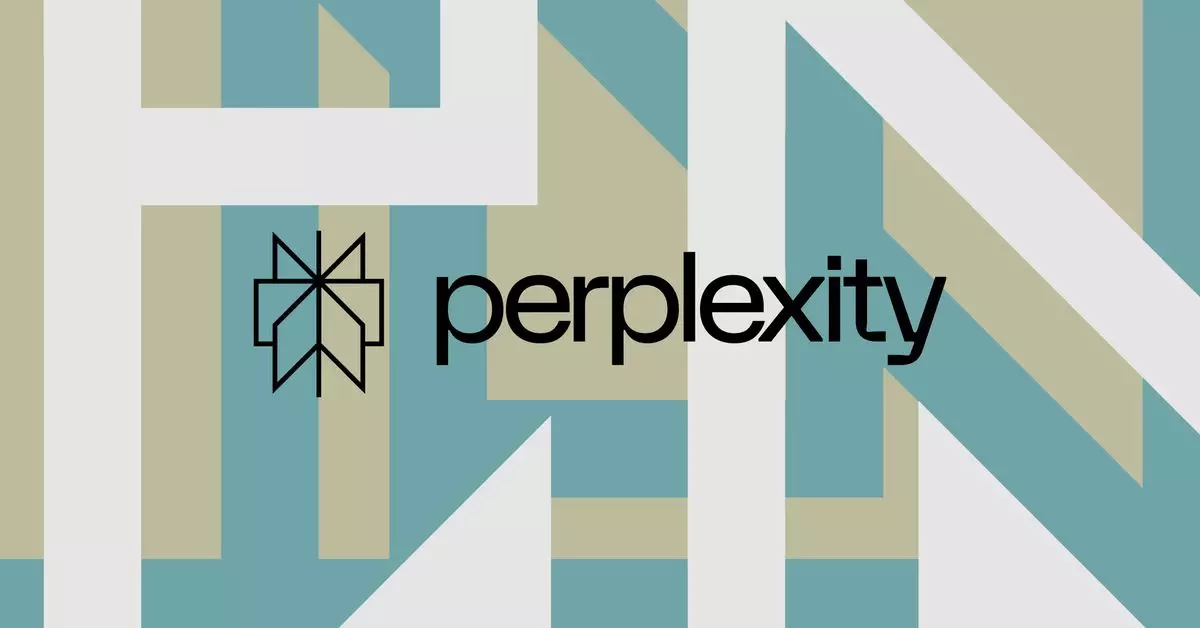In an era where technology is evolving at a breakneck speed, the intersection of artificial intelligence (AI) and intellectual property has become a hotbed of controversy. Recent developments have brought to light the ongoing conflict between AI startups and established media corporations, as seen in the ongoing lawsuit involving the AI search engine company Perplexity and News Corp, the parent company of influential publications such as The Wall Street Journal and the New York Post. This dispute raises crucial questions about the ownership of facts, the ethics surrounding content creation in the digital age, and the implications for both journalism and technology.
At the heart of the matter lies News Corp’s allegation that Perplexity is unlawfully “scraping” content from its publications without permission. The lawsuit claims that Perplexity’s search engine not only replicates reported facts but does so in a manner that resembles a “massive scale” copy of copyrighted material. Such claims echo the frustrations of traditional media against new technologies that utilize their content without adequate compensation or credit. The assertions made against Perplexity exemplify a growing unease within media corporations, who fear that their intellectual property is being exploited in a digital landscape that favors rapid access over intellectual integrity.
In an era where information is disseminated with unprecedented speeds and formats, the question of who owns a fact becomes problematic. Indeed, while no individual or corporation can claim ownership over facts themselves, the unique presentation or expression of those facts may be protected by copyright law. This distinction is at the core of the legal dispute, as evidenced by Forbes’ past accusations against Perplexity of reproducing passages from its articles with uncanny similarity.
In a bold rebuttal, Perplexity argues that large media organizations like News Corp operate under an outdated mindset, seeking to monopolize publicly available information rather than embracing collaborative or innovative solutions. The company asserts that the current state of affairs represents an “adversarial posture” that is ultimately detrimental to both the media industry and emerging technologies.
Perplexity’s stance contends that these legal actions reflect a reluctance to adapt to technological advancements, suggesting that the traditional media’s preference for litigation overlooks opportunities for synergistic partnerships. Moreover, Perplexity emphasizes its revenue-sharing initiatives with reputable publications, showcasing efforts to foster a more equitable relationship between AI developers and content creators. By promoting collaborative revenue models instead of combative legal scenarios, Perplexity hopes to pave the way for a transparent framework in which both parties can coexist.
On the flip side, News Corp has responded firmly, delineating its position with a statement from CEO Robert Thomson. He underscores the importance of protecting intellectual property rights, arguing that rampant copying by companies like Perplexity endangers the livelihood of journalists and content creators. The mediatic giant highlights its commitment to challenge what it terms a “content kleptocracy,” emphasizing that integrity and creative contribution are paramount in the progress of AI.
In this narrative, News Corp positions itself as a guardian of original content, adamantly vowing to pursue legal avenues against any company that infringes upon its intellectual property rights. Their emphasize on preferring collaboration over litigation, while still resorting to legal means for protection, suggests a complex stance that balances innovation with the necessity of safeguarding journalistic integrity.
The clash between Perplexity and News Corp encapsulates a broader dilemma faced by the media and tech industries: how to balance the free flow of information with the fundamental rights of creators. As AI continues to permeate every aspect of society, the urgency to construct a coherent framework that outlines content usage, ownership, and compensation has never been more pressing.
This situation underscores the need for a reevaluation of intellectual property laws in the digital realm, particularly as innovations such as AI gain traction. Addressing these issues will require collaboration among stakeholders across both sectors, fostering a culture that not only values creative contributions but also embraces technological advancements.
As we witness the developments in this ongoing saga, it becomes evident that the dialogue surrounding AI and intellectual property rights will be crucial in shaping the future of both journalism and technology. In another sense, this legal battle can act as a litmus test for how society will navigate the complexities of an ever-evolving information ecosystem. The ultimate resolution may reveal not only the future of AI tools like Perplexity but also the viability and direction of traditional media in a digital-first world.


Leave a Reply